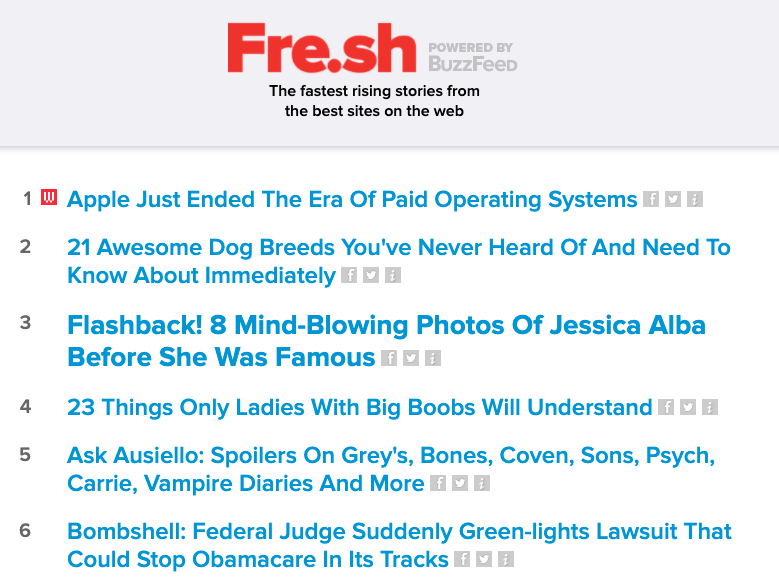
When I think back on my time at BuzzFeed, there was a lot that made us successful. We hired a talented, diverse group of creators. We invested in learning and development programs so staff could continue to grow in their roles. We built strong product and data teams to provide the resources so we could try things that no other media company could do.
But we also were willing to let a lot of things go.
There’s a long list of BuzzFeed projects that launched — some to significant fanfare — that didn’t work.
There aren’t many who still remember projects like BuzzFeed University (a program to encourage advertisers to build their own sponsored content), Fre.sh (a dashboard tracking the biggest stories on the internet), or Star.me (a social network that allowed you remix content). We launched these, and quickly realized that they weren’t working.
Sometimes, BuzzFeed launched projects that flopped — but showed a few signs of promise. Often, someone on staff would latch onto those projects and try to figure out how to take what had worked and turn it into something new.
But with certain projects, we knew early on that there wasn’t an audience for the thing we’d built. So instead of compounding our error and continuing to funnel resources and staff into a failure, we let it go, and moved on to whatever was next. There was always another idea that was worth trying.
No one wants to see a project fail. But it happens. Anytime you launch something new, make sure you know in advance how you’ll measure success for this new thing — if you do that, you’ll be able to see clearly when a project works, and when it doesn’t.
When it doesn’t, you may have to let it go. If there isn’t an audience or a need for the project, no amount of tinkering or investing is going to help. Better to quickly move on to the next idea than to lose more time trying to fix what doesn’t work.
———
That’s a screenshot of the BuzzFeed Fre.sh homepage on October 23, 2013. As you can tell from the list of stories here: It wasn’t nearly as useful to readers as we hoped it would be.
